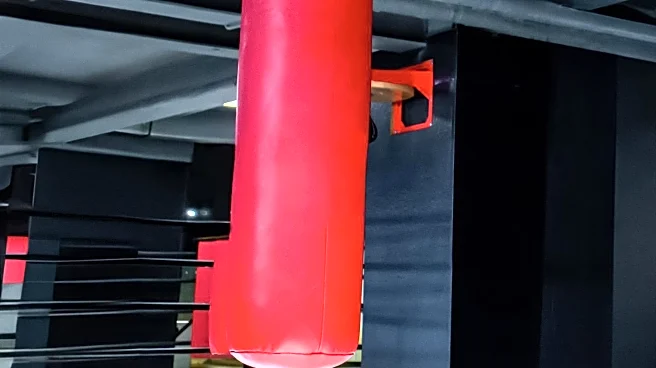What is the story about?
What's Happening?
Robert F. Kennedy Jr., the U.S. Health Secretary, has dismissed Jeanne Marrazzo, a prominent scientist at the National Institutes of Health (NIH). This action comes three weeks after Marrazzo filed a whistleblower complaint against the Trump administration, alleging hostility towards vaccine research. Marrazzo, who was previously demoted from her role as director of the National Institute of Allergy and Infectious Diseases, claimed her removal was retaliatory. The complaint also accused Trump officials of disregarding court orders and politicizing grant decisions. Kennedy's letter of termination did not provide a reason for her dismissal. This firing is part of a broader restructuring effort by Kennedy, aiming to eliminate 10,000 jobs within the Department of Health and Human Services (HHS).
Why It's Important?
The dismissal of Jeanne Marrazzo highlights ongoing tensions within federal health agencies regarding vaccine research and public health policy. The restructuring efforts led by Kennedy, coupled with budget cuts and job eliminations, could significantly impact the U.S. health research landscape. The reduction in workforce and funding may hinder progress in critical areas such as cancer treatment and vaccine development. This situation underscores the potential consequences of politicizing health research, which could affect public trust and the efficacy of health initiatives.
What's Next?
The termination of Marrazzo may lead to further scrutiny and debate over the management of federal health agencies. Stakeholders, including scientists and public health advocates, may push for transparency and accountability in the restructuring process. The broader implications for vaccine research and public health policy could prompt legislative or judicial interventions to address concerns raised in Marrazzo's whistleblower complaint.
Beyond the Headlines
The firing of Marrazzo raises ethical questions about the treatment of whistleblowers and the politicization of scientific research. It may also influence the cultural perception of vaccines and public health initiatives, potentially affecting public confidence in health authorities. Long-term shifts in research priorities and funding could alter the trajectory of U.S. health advancements.















